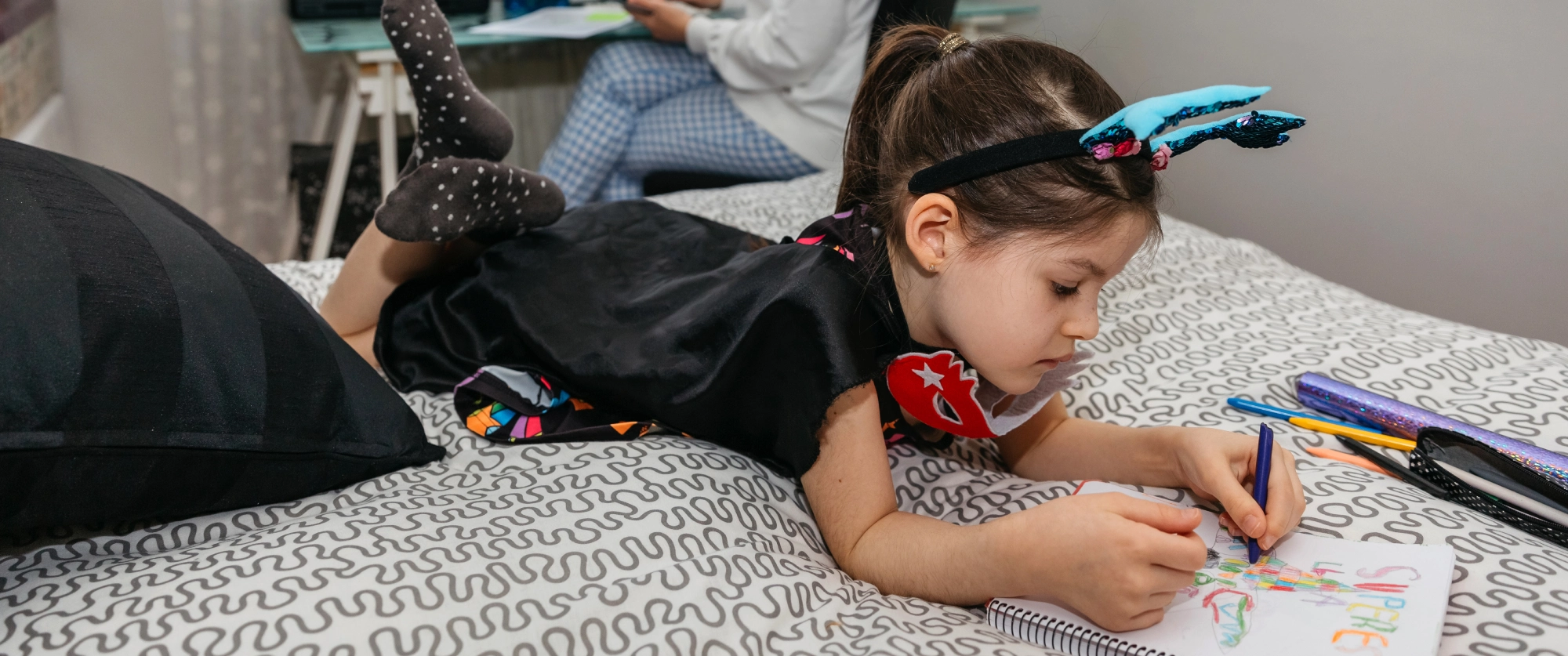How Divorce Impacts Daily Routines for Kids in NYC by Shim Law Group
Divorce can have a significant impact on children, particularly when it comes to their daily routines. In New York City, child custody and visitation laws are designed to ensure that children’s best interests remain the primary concern. However, the emotional and practical adjustments required after a divorce can be overwhelming for children.
At Shim Law Group, we understand the difficulties families face during this challenging transition. We specialize in child custody and visitation cases, offering experienced legal support to help you protect your child’s well-being.
This blog will examine how divorce can impact your child’s daily routine, the legal framework for child custody and visitation in NYC, and how we can support you during this time.

How Divorce Impacts Children’s Daily Life
When parents divorce, it often results in changes to the routines children have come to know. The adjustments they must make can be emotionally and practically difficult. Below are some ways divorce impacts children’s daily lives:
1. Disruption of Living Arrangements
After a divorce, children may find themselves in different living situations, with one parent often having primary custody. This means that children must adapt to new environments, schedules, and routines, which can be disorienting, especially for younger children. In New York, courts take into account the child’s stability when making custody decisions, but the transition period can still be difficult.
2. Adjustment to Shared Time
Children of divorced parents may have to split their time between two households, requiring adjustments to everything from bedtime routines to daily meals. This means that children experience different rules and expectations in each home, which can cause confusion or stress.
3. Changes in Social Activities
With the change in living arrangements, children’s social activities may also be affected. Dividing time between parents can lead to difficulties in scheduling play dates, extracurricular activities, and visits with extended family. Children might feel the loss of routine social interactions they were once accustomed to.
4. Impact on School Performance
The emotional and psychological impact of divorce can interfere with a child’s school performance. Children may have trouble focusing on their schoolwork or experience difficulty with attendance, especially if the divorce involves significant changes in living arrangements or emotional distress.
5. Emotional and Psychological Effects
Divorce can create emotional stress for children. They may feel sadness, anger, confusion, or anxiety as they adjust to the new family dynamics. Children who are used to a certain routine might experience emotional instability as they adapt to the changes brought on by divorce.
Legal Framework for Child Custody & Visitation in NYC
In New York City, the law prioritizes the child’s best interests when determining custody and visitation arrangements. The legal system seeks to ensure that children maintain a healthy relationship with both parents, whenever possible. Here are the key legal considerations related to child custody and visitation in NYC:
1. Child Custody Laws
According to New York Domestic Relations Law Section 240, custody is determined based on the child’s best interests. There are two types of custody:
- Physical Custody: Refers to where the child lives. One parent may have primary physical custody, or both parents may share physical custody.
- Legal Custody: Refers to the authority to make decisions regarding the child’s education, healthcare, and other key aspects of their upbringing. Legal custody can be shared or awarded to one parent exclusively.
2. Visitation Rights
In NYC, visitation allows the non-custodial parent to spend time with their child. Courts typically favor visitation arrangements that enable children to maintain strong, ongoing relationships with both parents. In some cases, visitation may be supervised if there are concerns regarding the child’s safety or well-being.
3. Modification of Custody & Visitation Orders
As circumstances change, parents may need to modify custody or visitation orders. If there is a significant change in either parent’s situation, such as relocation or changes in the child’s needs, a parent can petition the court for a modification. The court will always review whether the change is in the child’s best interests.
4. Parental Relocation
If the custodial parent wishes to move out of state or far away, the court will assess whether the relocation serves the child’s best interests. According to the New York Court of Appeals in Tropea v. Tropea (1993), the non-custodial parent has the right to challenge the relocation if it significantly impacts their time with the child.
5. Child Support and Custody
Child support and custody are interconnected. Custodial parents often receive child support payments from the non-custodial parent. The amount is determined based on the New York Child Support Standards Act, which considers both parents’ incomes and the needs of the child.
How to Manage Children’s Routines During Divorce
While divorce brings many changes, there are ways to help manage the impact on your child’s routine. Here are some tips to help ease the transition for your children:
1. Create a Consistent Schedule
Consistency is key to helping children feel secure after a divorce. Keep routines for meals, bedtime, homework, and weekends as predictable as possible. A stable routine can provide comfort and help children adjust more easily.
2. Keep Communication Open
Open communication between parents is vital for ensuring your child’s routines remain stable. Coordinate key events such as doctor appointments, school activities, and extracurriculars. Keeping both parents informed helps maintain a consistent approach to your child’s schedule.
3. Support Emotional Well-Being
Emotional support is critical. If your child is struggling with the changes brought by the divorce, consider seeking professional help. A therapist or counselor can assist in helping your child healthily process their emotions.
4. Avoid Conflict in Front of the Child
Children can be deeply affected by the conflict between parents. Avoid discussing contentious issues like custody or visitation in front of your child. This can help reduce their stress and prevent them from feeling caught in the middle.
5. Consider Co-Parenting Mediation
If you and your ex-spouse have difficulty agreeing on custody or visitation arrangements, co-parenting mediation may help. A neutral mediator can assist both parties in reaching a workable agreement that prioritizes the child’s needs.
Post-Divorce Support from Shim Law Group and Daily Routines for Kids in New York?
Navigating child custody and visitation issues can be overwhelming, but Shim Law Group is here to provide expert legal support every step of the way. Here’s how we can help:
1. Expert Legal Guidance
Our experienced attorneys understand the complexities of New York’s child custody and visitation laws. We provide clear, informed guidance throughout the process to ensure your case is handled professionally and efficiently.
2. Personalized Custody Plans
We work with families to create customized custody arrangements that prioritize the child’s well-being. Our legal team ensures that the plan reflects your family’s unique situation and meets the best interests of the child.
3. Advocacy for Your Child’s Best Interests
At Shim Law Group, your child’s best interests are our top priority. We advocate for your child’s emotional and physical needs, ensuring they have a stable and supportive environment, even after the divorce.
4. Mediation and Negotiation Support
We help facilitate mediation and negotiations between parents to develop a co-parenting plan. This approach aims to reduce conflict while ensuring that your child’s needs are met.
5. Court Representation
If necessary, we are prepared to represent you in court to advocate for the best possible outcome for your child. Our team has extensive experience handling child custody and visitation cases in NYC courts.
6. Modifying Custody and Visitation Orders
We help parents request modifications to existing custody and visitation orders when circumstances change. Whether it’s due to a parent’s relocation, a child’s evolving needs, or another significant change, we can assist in ensuring the best interests of your child continue to be met.
FAQs
1. What is the difference between physical and legal custody in NYC?
2. How does the court determine visitation rights?
3. Can custody and visitation orders be changed?
4. What factors influence the court’s decision regarding child custody?
5. How can Shim law group help with child custody and visitation?
What to Do Next
If you are facing a divorce or child custody battle, don’t navigate the complexities alone. Reach out to the Shim Law group for compassionate, experienced legal support. Our team is here to protect your child’s future. Contact us today for a consultation.
- Experienced NYC child custody attorneys
- Clear, court-approved parenting plans
- Total legal support from consultation to courtroom
📞 Visit shimlawgroup.com to book your consultation or call us today.







